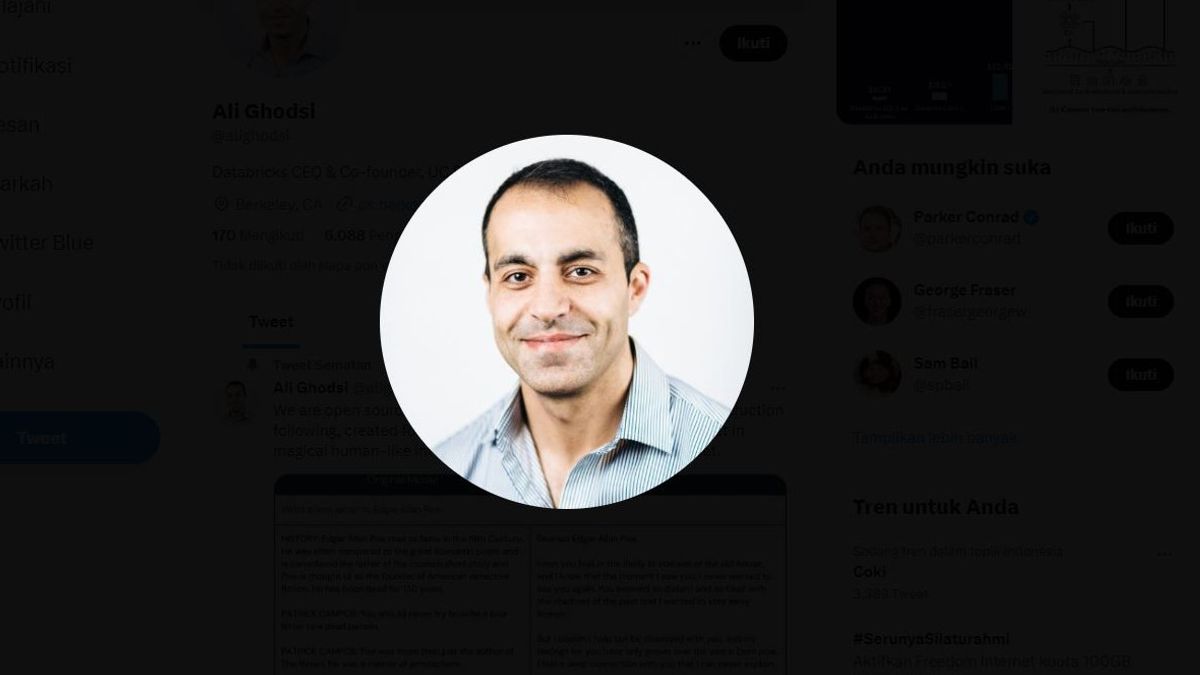JAKARTA - A startup from San Francisco, Databricks, which was last valued at US$38 billion (Rp576.3 trillion) on Friday, March 24 released an open-source code that the company could use to create their own ChatGPT-like chatbot belonging to OpenAI.
The code is an AI model, an algorithm trained on data sets and can learn from new data to perform various tasks.
Databricks CEO, Ali Ghodsi, said that the release aims to show a viable alternative in training the type of AI model called large language model with large resources and computing power.
Meet Dolly: you can now take an open source LLM and make it as ✨magical✨ as #ChatGPT. We’re open sourcing the code so you can get started building your own Dolly on Databricks 👇 https://t.co/N38WyUu8Ym
— Databricks (@databricks) March 24, 2023
The Large language model is the basis for the viral ChatGPT chatbot owned by OpenAI. OpenAI, which is valued at US$29 billion (Rp439.8 trillion), trains its AI model with a large collection of data on supercomputers from Microsoft Corp investors. "The required computational cost is "very large", said OpenAI CEO Sam Altman, quoted by Reuters.
OpenAI charges businesses to access their models for their own apps and project $1 billion in sales by 2024.
Databricks' efforts were made with notes. Ghodsi told Reuters that although open-source chatbots display impressive capabilities in tasks such as compiling blog posts, the company has yet to release formal benchmark tests to show that the bot is the same as ChatGPT's performance.
Databricks sold cloud-based data mining software and analysis for businesses and said last year it had exceeded $1 billion in annual revenue.
Databricks wants companies to train their own AI model using their software. Ghodsi said company researchers had taken a free two-year-old model and trained it with little data for three hours on a single computer that could be rented by anyone with a credit card.
"The future will be that everyone has their own model, and they can really train it, and they can make it better," said Ghodsi. "And in that way, they also don't need to give their data to anyone else."
Databricks' move comes at a time when startups are raising millions of dollars in venture capital investments to train their AI model and when big tech companies like Alphabet's Google and Meta Platforms Inc. are racing to shrink the size and cost of AI models while increasing their accuracy.
"My belief is that in the end, you will make these models smaller, smaller, and they will open-source," said Ghodsi. "Everyone will have them."
The English, Chinese, Japanese, Arabic, and French versions are automatically generated by the AI. So there may still be inaccuracies in translating, please always see Indonesian as our main language. (system supported by DigitalSiber.id)













